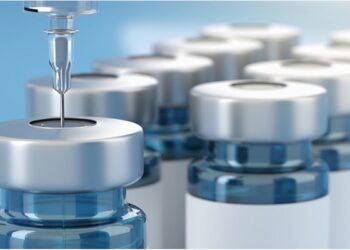• Healthcare and Life Science drive Group organic sales growth (+4.7%)
• Sigma-Aldrich acquisition fuels sales (+20.5%) and EBITDA pre exceptionals (+27.0%)
• Integration of Sigma-Aldrich proceeding according to plan
• Net financial debt lowered by around € 600 million
• Merck confirms and specifies outlook for 2016
Merck, a leading science and technology company, today announced significant increases in sales and earnings for the first quarter of 2016. While the acquisition of Sigma-Aldrich played a major role, the business also grew organically.
“We started off 2016 well and have grown profitably. The integration of Sigma-Aldrich is progressing quickly and we are also right on target with our debt reduction,” said Stefan Oschmann, Chairman of the Executive Board, in his presentation of the quarterly figures for the first time as Merck CEO. “For 2016 we continue to expect slight organic growth for the Merck Group,” said Oschmann.
Group net sales increased in the first quarter of 2016 by 20.5% to € 3.7 billion (Q1 2015: € 3.0 billion). Organically, Group sales rose by 4.7% thanks to the strong operating performance of the Healthcare and Life Science business sectors. Sales increased by 19.8% due to acquisitions, which was primarily attributable to the purchase of Sigma-Aldrich. The acquisition closed in November 2015 and the business has now been consolidated for a full quarter for the first time. Merck experienced currency headwinds of -4.0%, which were mainly due to Latin American currencies. In the first quarter, Merck grew organically in all reporting regions, especially in North America and Latin America. Due to the acquisition of Sigma-Aldrich, the share of sales attributable to North America rose considerably to 26% (Q1 2015: 20%). Accounting for 33% of Group sales, Europe was our largest region.
EBITDA pre exceptionals, the key earnings indicator of the Group, rose by 27.0% to € 1.1 billion (Q1 2015: € 853 million) thanks to the good operational performance of Healthcare and Life Science as well as the Sigma-Aldrich acquisition. Group EBIT rose by 76.8% to € 849 million (Q1 2015: € 480 million). This includes the one-time effect of the gain of around € 325 million from the sale of Kuvan, which was announced in October 2015. Merck’s net income more than doubled in the first three months of the year to € 591 million (Q1 2015: € 282 million). Earnings per share pre exceptionals rose in the first quarter of 2016 by 37.5% to € 1.54 (Q1 2015: € 1.12).
Merck has started deleveraging and reduced its net financial debt in the first quarter by € 581 million to € 12.1 billion. This follows the strong increase in debt at the end of 2015 due to the acquisition of Sigma-Aldrich. As with major acquisitions in the past, Merck is aiming to rapidly and extensively reduce its debt. Merck had 50,259employees worldwide on March 31, 2016.
Healthcare posts good organic growth
The Healthcare business sector achieved good organic sales growth of 5.4% in the first quarter of 2016, growing organically in all regions except for Europe. This was canceled out by negative foreign exchange effects of -6.8%. In addition, the return of the rights to Kuvan to BioMarin Pharmaceuticals lowered sales by -1.0%. Consequently, Healthcare net sales decreased by -2.4% in the first quarter of 2016 to € 1.6 billion (Q1 2015: € 1.7 billion).
Rebif, which is used to treat relapsing-remitting multiple sclerosis, sustained a slight organic sales decline of only -1.5% in the first quarter of 2016 despite increasing competitive pressure from oral formulations. Amid slightly negative currency effects of -0.2%, Rebif sales amounted to € 422 billion (Q1 2015: € 430 million). Sales of the oncology drug Erbitux grew organically by 3.8%. Including currency headwinds of -3.2%, Erbitux sales were stable at € 207 million (Q1 2015: € 205 million). With Gonal-f, the leading recombinant hormone used in the treatment of infertility, Merck achieved strong organic sales growth of 17.0% in the first quarter. Including negative exchange rate effects, sales rose to € 187 million (Q1 2015: € 164 million).
EBITDA pre exceptionals of the Healthcare business sector grew by 10.3% to € 508 million (Q1 2015: € 461 million) thanks to solid organic performance and the end of commission expenses stemming from the co-promotion of Rebif with Pfizer, despite increased R&D spending primarily for the avelumab program in immuno-oncology.
As part of the strategic transfer of products in the Healthcare business sector, as of January 1 we shifted vitamin preparations in India from the Biopharma business to Consumer Health, where they complement the existing business. The annual sales volume of the transferred business is around € 45 million.
Life Science increases profitability both organically and through acquisition
Sales increased in the Life Science business sector in the first quarter of 2016 by 89.3% to € 1.4 billion (Q1 2015: € 738 million). Apart from solid organic growth of 8.9% across all regions, the acquisition of Sigma-Aldrich fueled sales by 81.6% or € 602 million. By contrast, foreign exchange effects only had a minor impact of
-1.3% in the reporting period.
The Process Solutions business area, which markets products and services for the entire pharmaceutical production value chain, generated strong organic sales growth of 15.9%. Applied Solutions, which serves clinical and diagnostic testing laboratories as well as the food and environmental industries, posted an organic sales increase of 3.6%. The Research Solutions business area, which focuses on academia and pharmaceutical research institutions, generated organic sales growth of 2.0%
At € 393 million, EBITDA pre exceptionals of Life Science in the first quarter was more than two times higher than in the year-earlier quarter (Q1 2015: € 184 million). The EBITDA margin pre exceptionals rose to 28.1% (Q1 2015: 25.0%).
Merck is making good progress with the integration of Sigma-Aldrich. “Since completing the acquisition in November, we have added around half of the addressable legacy Merck Millipore portfolio to the industry-leading Sigma-Aldrich e-commerce platform in the United States and 30% in Europe,” said Merck CEO Oschmann.
OLED business of Performance Materials is growing further
In the first quarter, net sales of the Performance Materials business sector grew by 0.9% to € 622 million (Q1 2015: € 617 million). This reflects acquisition-related sales increases of 2.7%, which were due to the consolidation of the SAFC Hitech business of Sigma-Aldrich. Organically, sales decreased by -2.4%. This decline in sales was primarily due to the expected destocking by display industry customers.
In the Display Materials business unit, the partly strong growth seen with the innovative liquid crystal technologies such as UB-FFS could not fully offset the volume decline of older liquid crystal technologies as well as destocking by customers. However, Display Materials maintained its market leadership position. The Pigments & Functional Materials business unit delivered moderate organic growth. The Integrated Circuit Materials business unit, which includes the business with materials used to manufacture integrated circuits as well as the SAFC Hitech business from Sigma-Aldrich, generated solid organic sales growth. Within the Performance Materials business sector, the highest growth rates were achieved by the Advanced Technologies business unit. This was primarily due to the expanding business with OLED materials. A new OLED materials production unit in Darmstadt involving an investment of around € 30 million is to be commissioned in the summer to manufacture materials for ultra-modern displays and lighting.At € 273 million, EBITDA pre exceptionals of Performance Materials was at the previous year’s level (Q1 2015: € 277 million).
Merck confirms and specifies outlook for 2016
Merck has confirmed the qualitative forecast given with the publication of the 2015 Annual Report in March 2016 and specified it. Due to the good business performance in the first quarter, Merck assumes that Group net sales will increase to between € 14.8 billion and € 15.0 billion in 2016 and continues to expect slight organic sales growth. Owing to the acquisition of Sigma-Aldrich, Merck expects a portfolio-related increase in net sales in the low double-digit percentage range. This will be countered by negative foreign exchange effects predicted to range between –3% and –5%, due especially to the continued devaluations of Latin American currencies. The forecast for EBITDA pre exceptionals at Group level in 2016 is between € 4.1 billion and € 4.3 billion. Business free cash flow of the Merck Group is expected to be between € 3.1 billion and € 3.3 billion in 2016. Merck expects earnings per share pre exceptionals of € 5.65 to € 6.00.

















